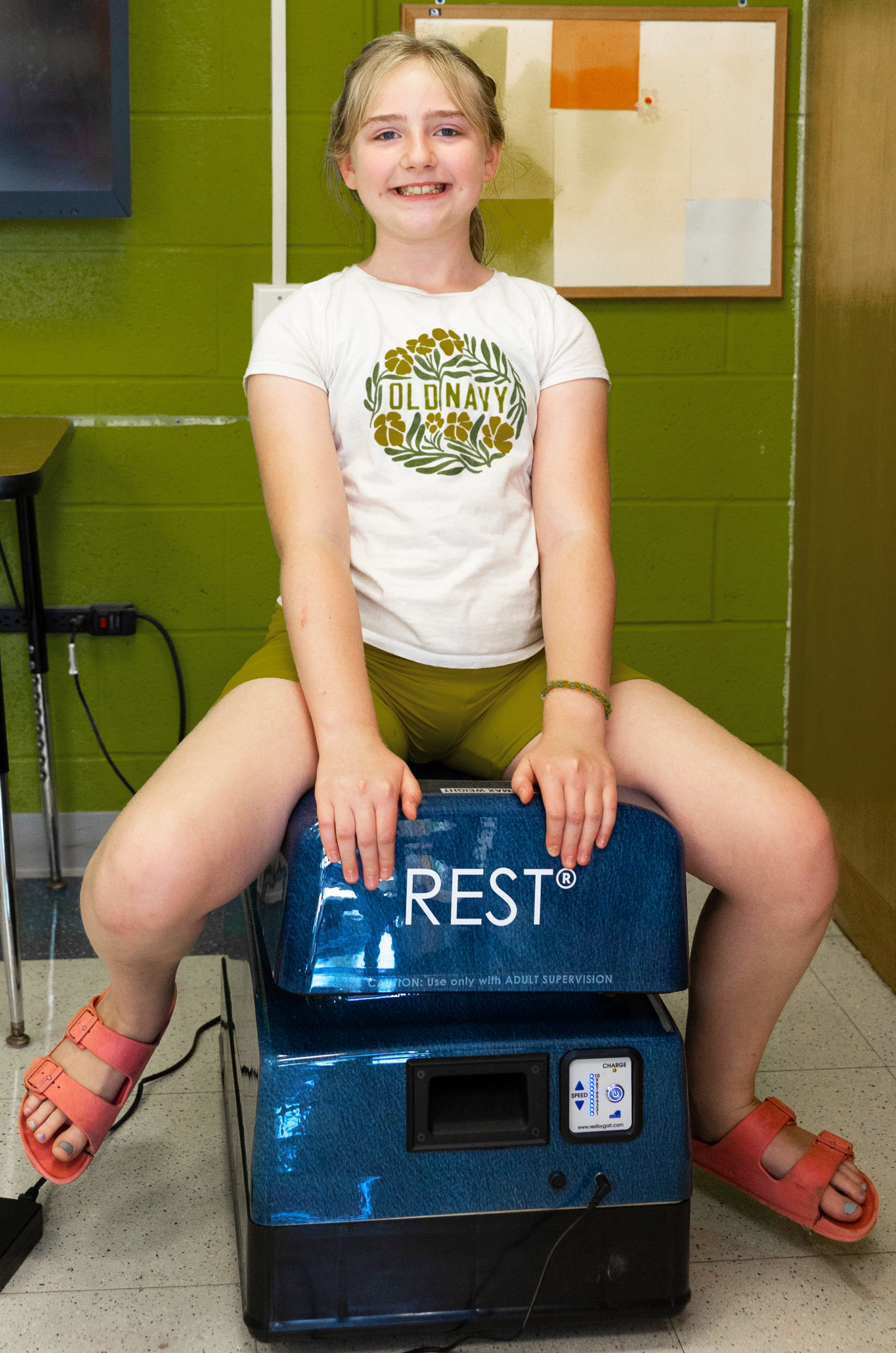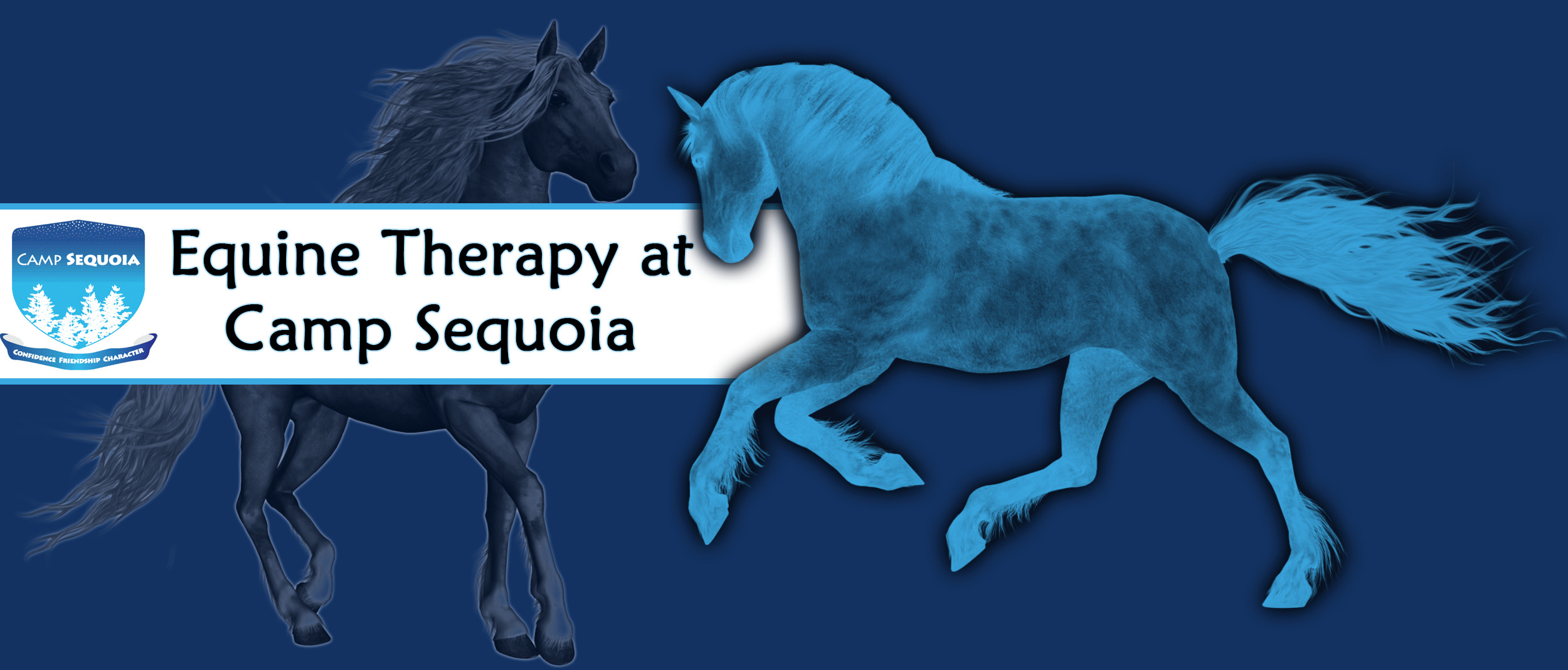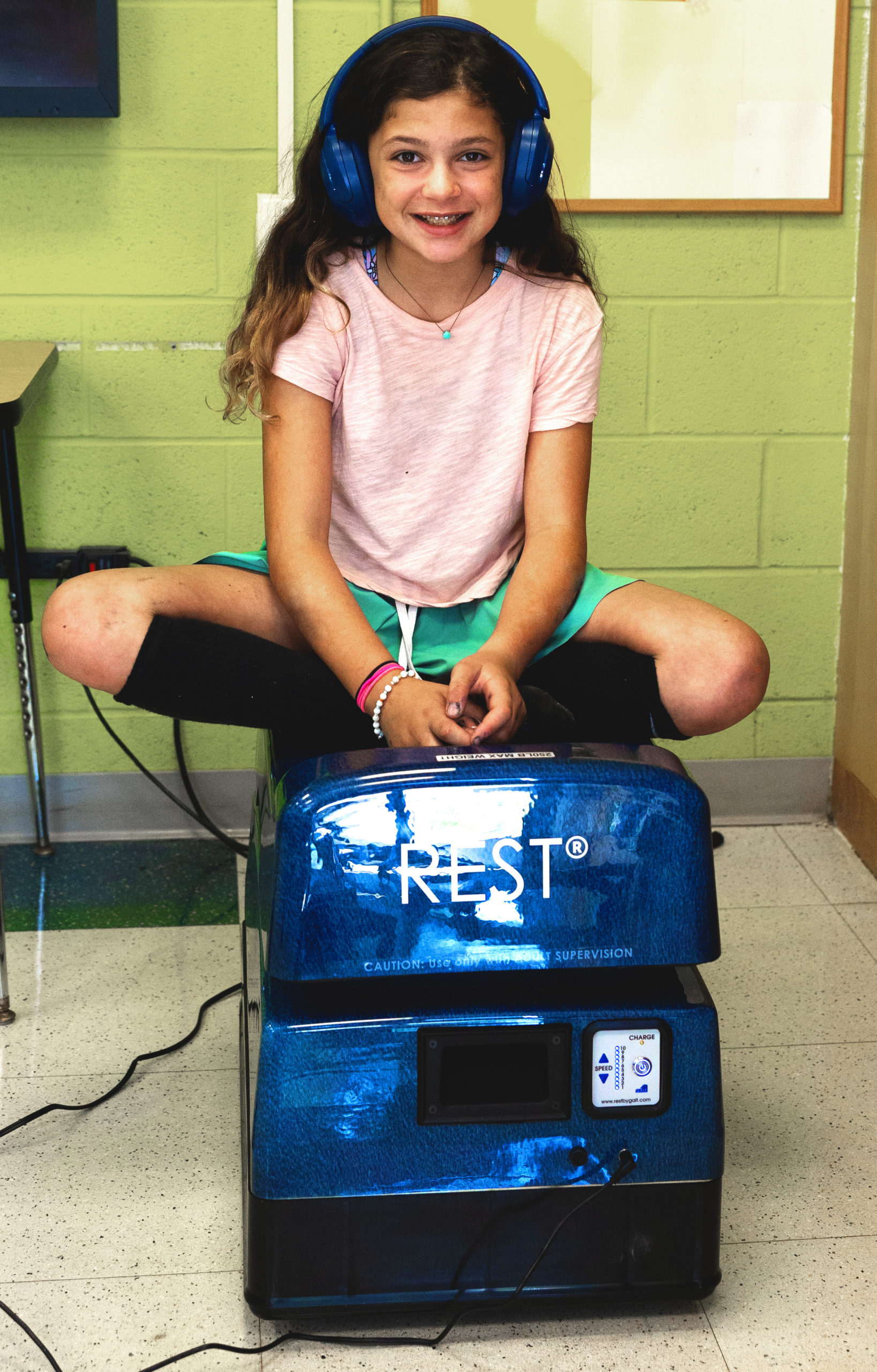What is REST©?
REST© stands for “Responsive Equine Simulator Therapy”. The REST© machine, displayed here, is a comfortably-sized therapeutic seat designed to mimic the motion and gait of a walking horse to help focus and relax neurodiverse children. The REST© chair’s design and price point allows therapists, school systems, and households (and Camp Sequoia!) to provide the benefits of equine motion inside any space without the need for an actual horse and the expenses their upkeep incurs.

REST Hour at Camp Sequoia
We noted that the posture and non-verbal whole body affect of campers using the REST© was consistent with less
tension and reduced stress when talking with a group.
REST© Introduction and Integration
Camp Sequoia utilized two REST© units during our summer 2020 residential session. After introducing the REST during the start of camp, we noted that the REST© machines helped our campers with speaking to a group, especially in a small group social setting, when introducing themselves to others. One week after these icebreakers, we then gave our campers the chance to utilize the REST© machines again while choosing one of their fellow campers at random and re-introducing them to the cohort. Given the option, 100% of each cohort chosen to utilize the REST© while doing this re-introduction.
We found that, compared to similar activities done without the REST© in prior years, student re-introductions were more vivid, with more details and included synthesis of information from the week that they had lived together rather than just recall of student directed information from introduction day. Interestingly, we put no time limit on these reintroductions, and found that students tended to take additional time, make better eye contact than we would have anticipated based upon prior experience with this exercise without the REST© unit. Also, interestingly students waiting to use the REST© next (order of use was not predetermined) were active listeners, asked appropriate questions and there was very little off task behavior. As focus and attention are two areas of relative weakness for our kids, utilizing the REST© helped improve these areas.
Additionally, we found that the REST© machine could be utilized to help our campers with:
- Moments of de-escalation when campers grew upset or frustrated
- both alone, and with guided mindfulness exercises including rhythmic breathing)
- Self-regulation
- e.g. available for student use on demand)
- Dealing with grief
- We had a camper who lost a pet during their stay with us, and we found the REST machine helpful in coping with this loss, paired with support from our Social Skills Team.
- A “less scary” option to real-life horseback riding excursions
- For those who were afraid of horses, or had allergies to significant elements of nature, the REST© was a viable alternative
- A substitute conversation starter for kids with our social worker, school counselor, and clinician when our designated therapy dog was otherwise occupied


